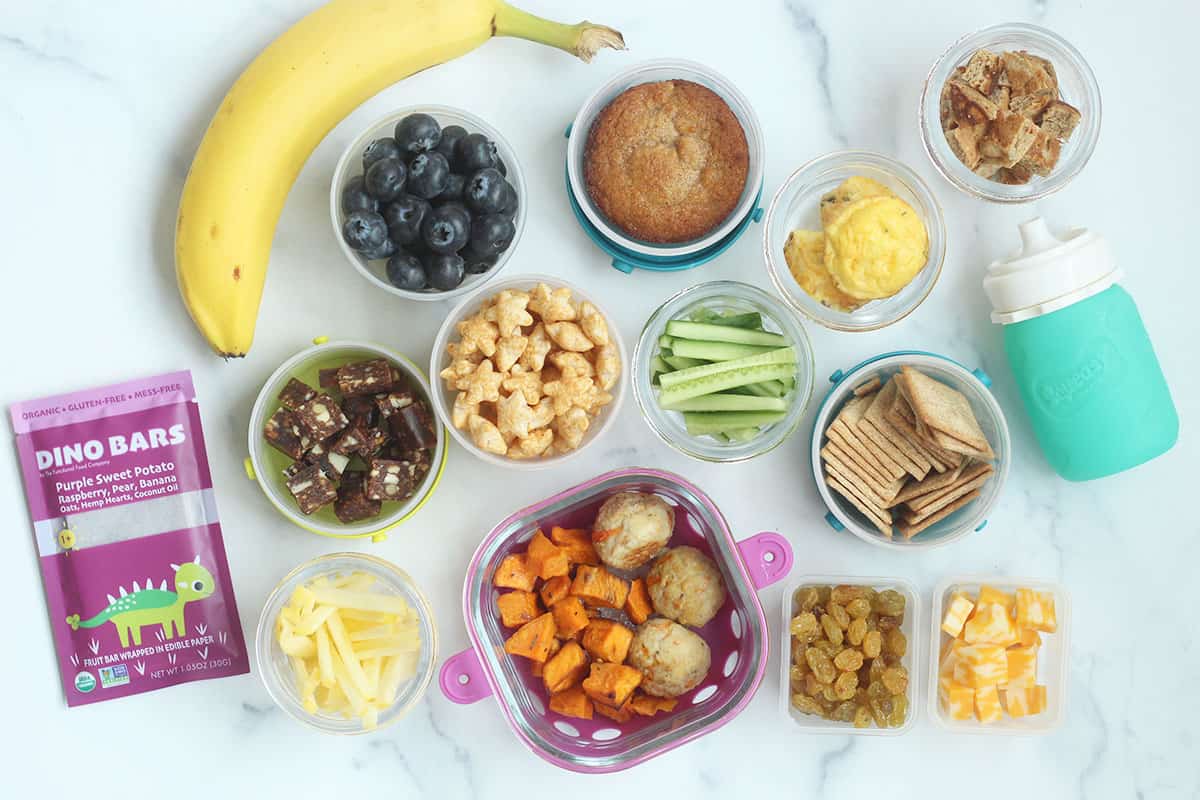
Tiny Bites, Big Impact: Understanding the Role of Snacks in Toddler Diets
Fueling those tiny tornadoes you call toddlers can feel like a full-time job. While meals are crucial for providing essential nutrients, healthy snacks for toddlers are surprisingly important in keeping your little explorer energised and thriving. This article dives deep into toddler snacking, exploring why it matters, what to offer, and how to navigate those picky eating phases.

Why are Snacks Important for Toddlers:
Unlike adults, they have smaller tummies and burn energy quickly. Meals alone might not be enough to keep them going throughout the day, leading to meltdowns fueled by hunger pangs. Here’s where these come to the rescue:
Bridging the Gap Between Meals: These provide essential fuel between meals, ensuring your toddler’s energy levels stay steady. This can help prevent crankiness and promote better focus during playtime and learning activities.
Nutrient Boost: Smart snacking choices can fill nutritional gaps that meals might miss. Think fruits and vegetables for vitamins and fibre or yoghurt for a calcium top-up.
Developing Healthy Eating Habits: These offer opportunities to introduce various healthy foods and textures. This helps them develop nutritious options and sets healthy eating habits in the long run.
Choosing the Right Snacks:
Picking the perfect snacks can feel overwhelming, with a grocery aisle overflowing with options. Here are some key things to keep in mind:
Nutrition: Focus on nutrient-rich options that balance carbohydrates, protein, and healthy fats. This will satisfy your toddler and provide the building blocks for growth and development.
Variety: They can be picky eaters, so offering a variety of textures and flavours can help prevent boredom and ensure a well-rounded intake of nutrients.
Portion Control: Tiny tummies don’t need massive portions. Offer smaller-sized snacks throughout the day to avoid overwhelming your toddler or spoiling their appetite for meals.
Safety: Choose snacks appropriate for your toddler’s age and development. Avoid choking hazards like whole nuts, grapes, or cherry tomatoes. Opt for cut-up fruits and vegetables or nut butter spread on crackers.
Snack Inspiration: Delicious and Nutritious Options
Now that you know what to look for explore some fantastic toddler-friendly snack ideas:
Fruits and Vegetables: Nature’s candy! Fruits and vegetables are packed with vitamins, minerals, and fibre. For dipping, offer sliced apples, pears, or bananas with a dollop of nut butter. Steamed broccoli florets, cherry tomatoes, or cucumber sticks can be fun finger foods.
Dairy Delights: Dairy products are a great source of calcium and protein, both essential for growing bodies. Offer plain yoghurt with chopped fruit, cheese slices with whole-wheat crackers, or a small milk box.
Whole Grains: Whole grains provide complex carbohydrates for sustained energy. Offer whole-wheat toast with mashed avocado, mini bagels with cream cheese, or homemade oatmeal with a sprinkle of cinnamon and berries.
Protein Powerhouses: Protein helps them feel full and supports muscle development. Hard-boiled eggs, cut-up chicken or turkey breast, or a small handful of roasted chickpeas are all excellent options.
Healthy Fats: Healthy fats are vital for brain development and overall well-being. Offer slices of avocado, homemade guacamole with veggie sticks, or a handful of mixed nuts (chopped for older toddlers).
Homemade vs. Pre-Packaged: While pre-packaged snacks can be convenient, aim to offer mostly homemade options whenever possible. This allows you to control ingredients and ensure your toddler gets the healthiest choices.
Dealing with Picky Eaters: Tips and Tricks
Even the most enthusiastic eaters can go through picky phases. Here are some tips to navigate these challenges:
Offer Choices: Present your toddler with a couple of healthy options and allow them to choose. This will give them a sense of control and make them more likely to try something new.
Make it Fun: Cut food into fun shapes with cookie cutters or arrange them creatively on the plate. Let your toddler help with age-appropriate prep tasks like washing fruits or stirring yoghurt.
Be Patient: It can take considerable exposure for a toddler to accept a new food. Don’t pressure them to eat, and keep offering various healthy options.
Lead by Example: Kids learn by watching. Make healthy snacking a part of your family routine. Enjoy fruits and vegetables together and show your enthusiasm for healthy eating.
Summing it Up:
In the world of nutrition, healthy snacks for toddlers wield significant influence. By understanding the role of these foods and making informed choices, parents can nourish their little ones effectively. With mindful selection, proper timing, and portion control, these can be transformed into powerful tools for supporting the growth and development of toddlers. So, embrace the art of snacking and watch your little one thrive one nibble at a time.



